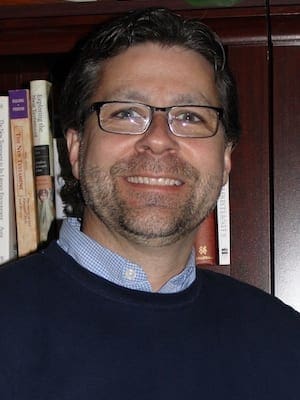On May 14, 1948, the modern State of Israel declared its sovereignty as an independent state and a home for the Jewish people. That action opened a floodgate of violence that continues to this day, and it created a human catastrophe as nearly a million Palestinians were forced from their homes and became refugees–a number that, according to the United Nations, has increased exponentially.While attempts at establishing lasting peace have been made on several occasions, none has been successful. What is an authentic Christian response to the Middle East question?
Psalm 122:6 commands us to pray for the peace of Jerusalem, and clearly peace is at the heart of Jesus’ message that the rule of God has come into the world. Yet it seems that obstacles to peace for all inhabitants of the land called holy by Jews, Christians and Muslims have prevented such long-term steps toward peace and harmony in the region. Nothing continues to threaten such hopes of peace like religious extremism.
There has been a longtime extremist movement in an American version of Christianity that has played a key role in shaping U.S. policy in the Middle East, and particularly over the thorny issue of the historic Land of Palestine. While many conservative and fundamentalist Christians hold stringently to the belief that God has ordained the existence of the modern State of Israel, and that Israel should hold onto land at any cost without regard for the humanity of the Palestinians, none is more vocal than the Reverend John Hagee and his movement, Christians United for Israel.
Hagee sees history from only one perspective. His view, which is thoroughly apocalyptic and eschatological, sees human history as moving toward a predestined end, and he argues that the modern State of Israel will play a key role in the apocalyptic end of the world. While he seeks to support his view from the Book of Revelation and various texts from the Hebrew Bible, he is very selective in his readings, and he reads only from his own apocalyptic position, placing his narrow theological ideas on the text as a systematic grid through which all of Scripture should be read.
Hagee’s interpretations of Scripture, however, are misguided, and his sermons, accompanied by the colorful, dramatic and neatly organized charts that disguise his irrational position, are only fictitious expectations about the end times. More tragically, however, he sees apocalyptic war as the inevitable end and seeks to push the region to that end as quickly as possible.
In spewing his religious extremist rhetoric, Hagee differs little from other religious extremists, who base their understanding of the Middle East conflict solely on religious terms and believe the only solution to be a great apocalyptic war in which the followers of God will be victorious over those who are evil. The problem with these positions is that each claims to speak for God and each despises others as evildoers.
While many Christians, and others, have rightly voiced disgust at the hateful rhetoric of extremists from other faiths, rarely have we heard criticism about Hagee’s rhetoric. Even some conservative politicians have attended and spoken at his rallies. Yet Hagee fits the description of a false prophet whose intentions are not for peace in Israel but for annihilation of an oppressed race, the Palestinians. He is about as far away from the teachings of Jesus as one could possibility get on this issue.
The fact of the matter is that since the founding of the modern State of Israel in 1948, the Palestinians, who had peacefully resided there for generations, have been oppressed, ghettoized and killed by state-sponsored acts of terror. Certainly, extremist Palestinian terrorist groups who have acted in horrible violence against innocent Israeli civilians must be held accountable for their horrendous acts. But Israel must also be held responsible for the illegal confiscation of land, the oppression of millions of Palestinians who have been forced from their homes and the killing of many innocent Palestinians by Israeli armed forces.
Our religious, political and media-driven culture has so clouded our understanding of the complex issues surrounding the Middle East conflict that we have gravitated to fanciful beliefs and explanations about the region that have no real grounding in Scripture and that completely ignore the teachings of Jesus that call us to be peacemakers.
Christians who are concerned about the peace of Jerusalem would do much better by being more broadly informed about the complex issues from experts who have studied the history of the conflict, rather than getting their information from someone like John Hagee.
May the God of peace bring shalom, salaam, and peace to Jerusalem for people from all faiths.
Drew Smith, an ordained Baptist minister, is director of international programs at Henderson State University in Arkadelphia, Ark. He blogs at Wilderness Preacher
Assistant Director of the Honors College at Henderson State University in Arkadelphia, Arkansas.

